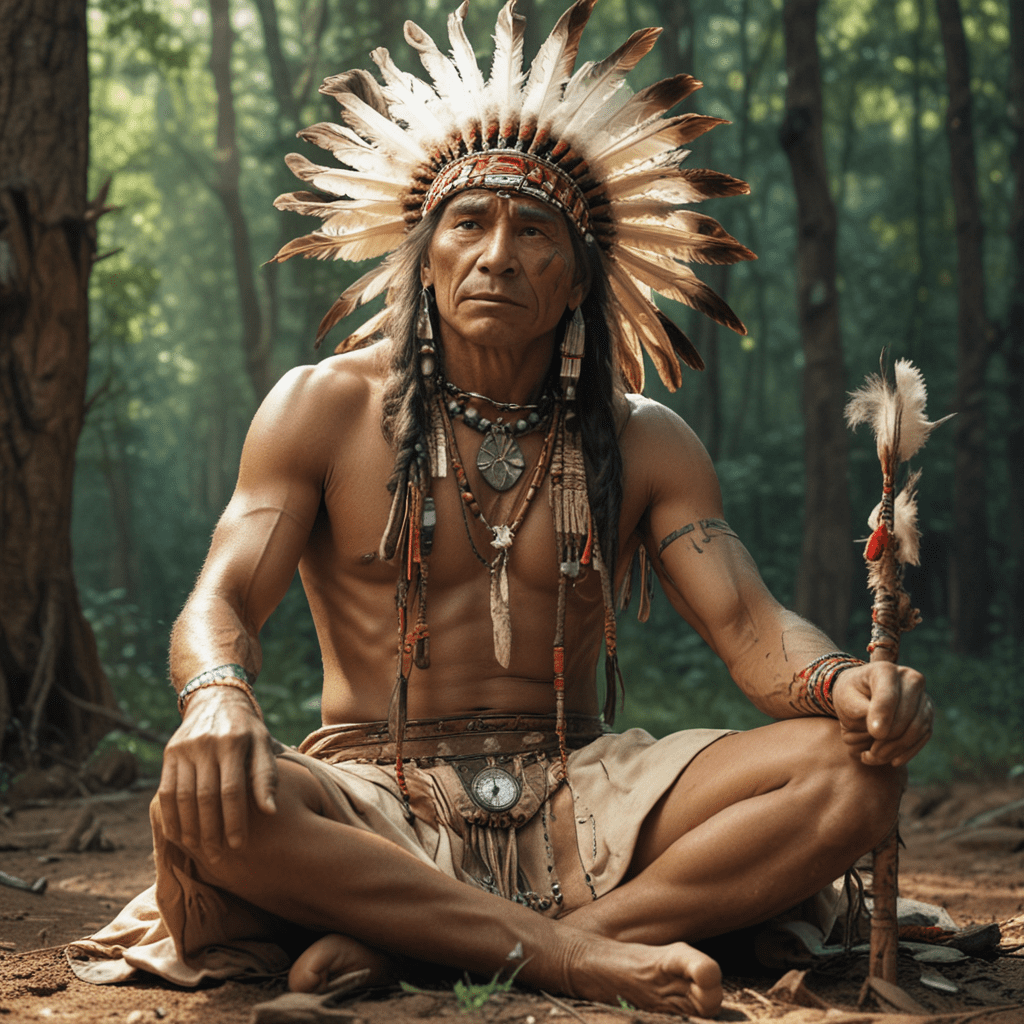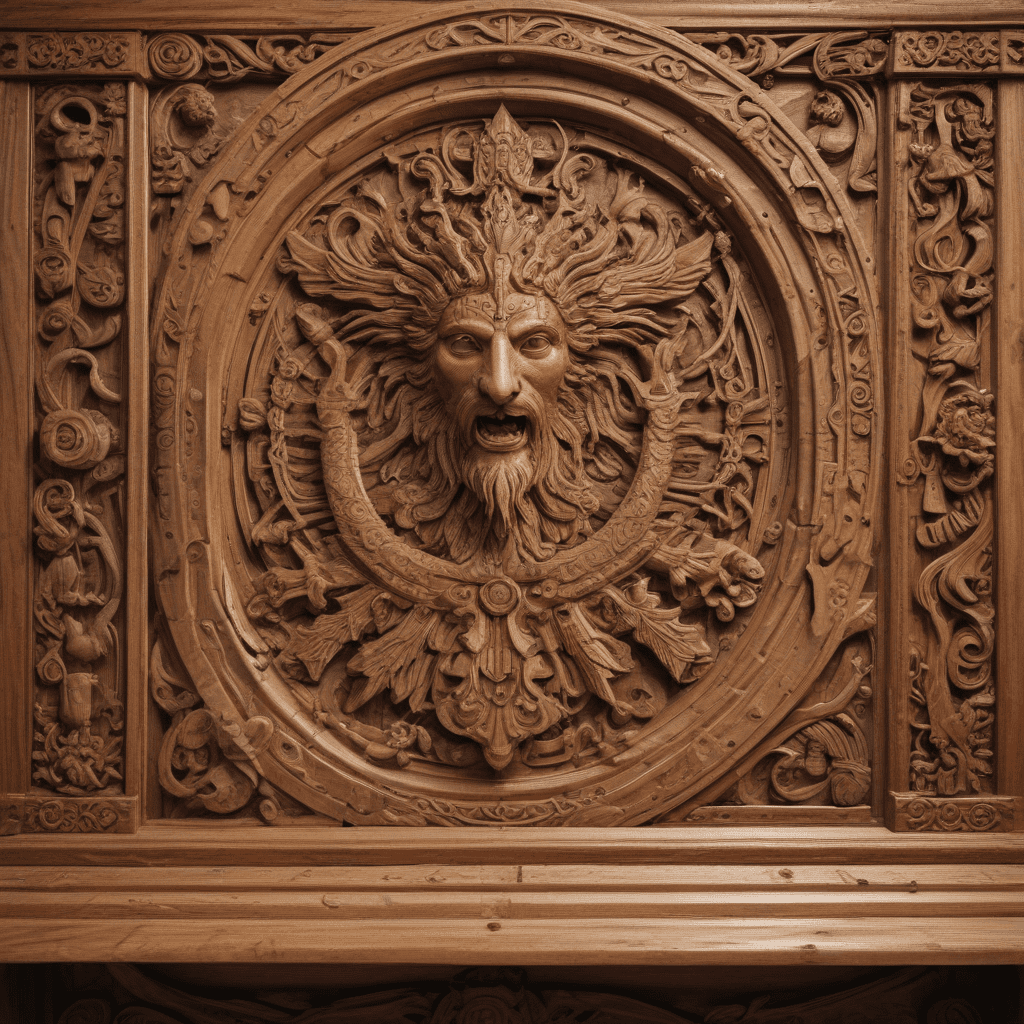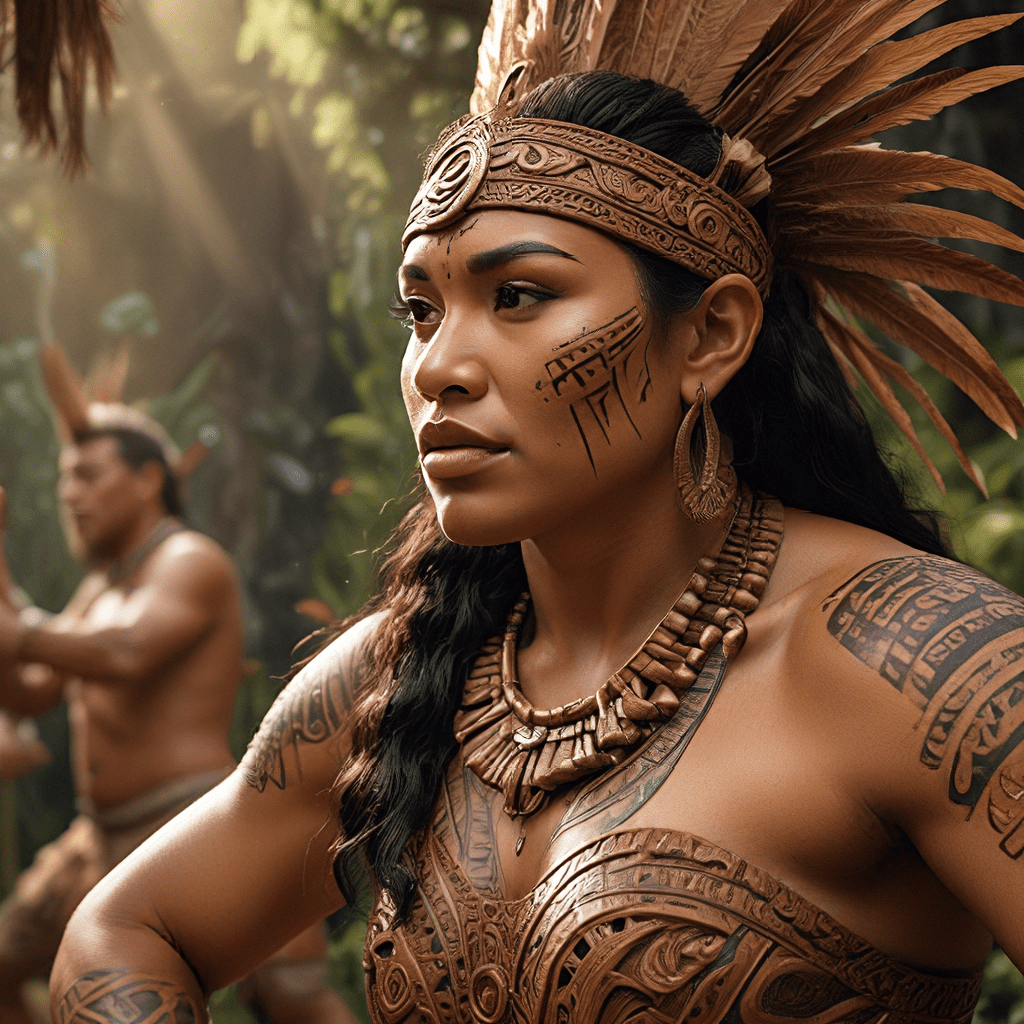The Medicine Man in Native American Mythology
In the rich tapestry of Native American cultures, the medicine man holds a revered position as a bridge between the physical and spiritual realms. Steeped in ancient traditions, these individuals embody a profound connection to nature, the animal world, and the sacred forces that govern life.
Origin and Mythology
Across various Native American tribes, the medicine man is often believed to possess innate spiritual abilities, bestowed upon them by a supernatural encounter or vision. In some traditions, these individuals are said to descend from a lineage of spiritual healers or shamans, passing on their knowledge and practices through generations. As chosen intermediaries between the human and divine, medicine men play a vital role in maintaining the harmony and well-being of their communities.
Shamanic Beliefs and Practices
The term "shaman" often refers to a type of medicine man who engages in specific rituals and practices to access the spirit world. Shamans believe that illness and other misfortunes stem from imbalances or disruptions in the spiritual realm, and they utilize techniques such as drumming, chanting, and trance states to communicate with spirits, diagnose ailments, and facilitate healing. Their practices often involve the use of sacred herbs, animal totems, and other ritual objects to enhance their connection to the supernatural.
Healing Powers and Rituals
Medicine men are renowned for their healing abilities, employing a holistic approach that encompasses physical, mental, and spiritual aspects of health. They use a variety of traditional remedies and techniques, including herbal medicines, massage, cupping, and purification rituals. These individuals possess a deep understanding of the body's natural healing processes and often incorporate sacred songs, prayers, and ceremonies into their healing practices. Their rituals aim to restore balance and harmony to the individual, promoting both physical and spiritual well-being.
6. Relationship with Nature and the Animal World
Medicine men hold a profound reverence for nature and the animal world. They believe that all living beings are interconnected and possess spiritual significance. Animals are often considered as guides, messengers, or even protectors, and medicine men often seek their guidance and assistance in their healing practices. The natural world is viewed as a source of wisdom and healing power, and medicine men often incorporate elements from nature, such as herbs, animal spirits, and natural landmarks, into their rituals and ceremonies.
7. Symbolism and Ceremonies
Symbolism plays a significant role in the practices of medicine men. They often utilize sacred objects, animal totems, and natural elements as symbols of spiritual forces or healing energies. Ceremonies and rituals are integral to their work, serving as a bridge between the physical and spiritual realms. Through these ceremonies, medicine men invoke the power of the spirits, connect with the animal world, and facilitate the healing process for individuals and communities.
8. Oral Traditions and Stories
The knowledge and practices of medicine men are often passed down through oral traditions and stories. These narratives recount the experiences and teachings of legendary medicine men, providing guidance and inspiration for future generations. Storytelling is an essential aspect of Native American culture and serves as a way to preserve and transmit the wisdom and spiritual beliefs of the tribe.
9. Cultural Significance and Impact
Medicine men have a profound cultural significance in Native American communities. They are respected as healers, spiritual leaders, and guardians of tradition. Their work contributes to the overall health and well-being of the tribe, both physically and spiritually. By maintaining the balance between the human and natural worlds, they play a vital role in preserving the cultural identity and spiritual heritage of their people.
10. Medicine Men in Contemporary Times
The tradition of medicine men continues to thrive in contemporary Native American communities. While many of the ancient practices have been adapted to modern times, the core principles of healing and spirituality remain the same. Medicine men continue to work alongside Western medical practitioners, offering a holistic and culturally sensitive approach to healthcare. They remain respected figures in their communities, providing guidance, support, and a deep connection to the spiritual traditions of their ancestors.
FAQ
What is the difference between a medicine man and a shaman?
While the terms are often used interchangeably, shamans generally refer to individuals who engage in specific practices to access the spirit world, such as drumming, chanting, and trance states. Medicine men, on the other hand, encompass a broader range of healing practices, including herbal medicine, massage, and purification rituals.
Are medicine men only found in Native American cultures?
No, medicine men and similar spiritual healers are found in many cultures around the world, including Africa, Asia, and Europe. However, the term "medicine man" is most commonly associated with Native American traditions.
How do medicine men learn their skills?
Traditionally, medicine men are chosen through a spiritual calling or vision. They then undergo extensive training and apprenticeship under the guidance of an experienced elder or mentor, learning about herbal remedies, healing rituals, and the spiritual practices of their tradition.



